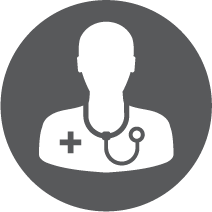When was the last time you had an eye examination? If it has been a while, or if you are experiencing any changes in your vision, it may be time to schedule an advanced eye examination. An advanced eye examination goes beyond a basic check-up and delves deeper into the health of your eyes. This post will explore what you can expect during an advanced eye examination and the importance of regular eye check-ups.
Comprehensive Eye History
The optometrist will start by taking a detailed history of your eye health and any vision concerns you may have. They will ask about your medical history, including any existing conditions such as diabetes or high blood pressure, as these can affect your eyesight. Providing accurate and complete information will help the optometrist understand your specific needs.
Visual Acuity Tests
During an advanced eye examination, the optometrist will conduct visual acuity tests to assess the sharpness of your vision. You will be asked to read letters or numbers on a chart from different distances. This will determine if you need corrective lenses or if your current prescription needs to be adjusted.
Refraction Assessment
The optometrist will perform a refraction assessment to determine your exact prescription if corrective lenses are necessary. You will be asked to look through a series of lenses while the optometrist fine-tunes the prescription until your vision is clear and comfortable. It is essential to communicate any changes in clarity or discomfort during this process.
Eye Health Examination
One of the crucial aspects of an advanced eye examination is the comprehensive eye health assessment. The optometrist will use specialised equipment to examine the structures of your eyes, including the cornea, lens, retina and optic nerve. This allows them to detect any abnormalities or signs of eye diseases such as glaucoma, cataracts or macular degeneration.
Advanced Imaging Technologies
Sometimes, the optometrist may use advanced imaging technologies to get a more detailed view of your eyes. These include optical coherence tomography (OCT) scans, which create cross-sectional images of the retina and retinal photography, which captures high-resolution images of the back of the eye. These imaging techniques aid in the early detection and monitoring of eye conditions.
Discussion and Recommendations
After the examination, the optometrist will discuss their findings with you and provide recommendations based on your needs. This may include prescribing glasses or contact lenses, suggesting lifestyle changes to improve eye health or referring you to a specialist for further treatment, if necessary.
An advanced eye examination goes beyond a basic check-up and thoroughly assesses your eye health. By scheduling regular examinations and following the guidance of your optometrist, you can ensure the longevity of your eye health and catch any potential issues before they worsen. Don't neglect your vision; make an appointment for a health fund eye test today.
Share
